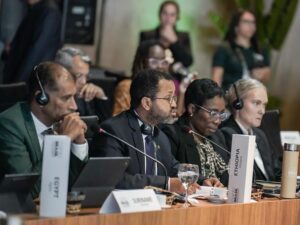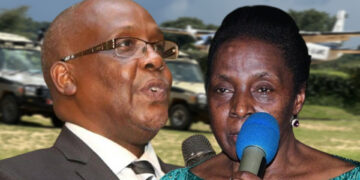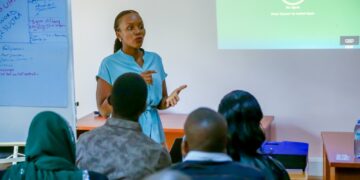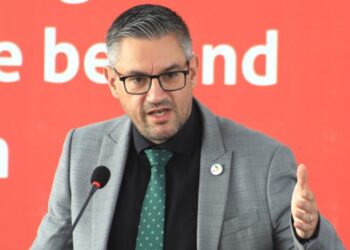OPINION
Editor, the recently concluded second Africa Climate Summit (ACS2) which people had hope in, left many with a feeling of disappointment because of the glaring silence on the ongoing new fossil fuel projects such as EACOP that has exacerbated climate change in Bunyoro region while discussions largely focused on unlocking the continent’s renewable energy potential. People thought the ACS2 would provide another opportunity to position the continent as a global leader in climate action by advancing African-led adaptation, mitigation and green growth initiatives while tackling climate finance challenges.
Noteworthy, during the 2023 climate summit held in Nairobi Kenya, African countries agreed to reduce the greenhouse gas emissions by 43% by 2030 where African Banks led by the African Development Bank (AfDB) and Afreximbank committed to fostering a just and inclusive energy transition by supporting renewable energy, developing climate-resilient economies and advocating for financial system reforms.
The summit also advocated for a phase-down of unabated coal and inefficient fossil fuel subsidies. Additionally, at COP26, all of the top 60 global banks Pledged to cut funding for fossil fuels projects in line with the commitment of net zero targets in the Paris agreement, however, participation in financing oil developments like East African Crude Oil Pipeline (EACOP) still stand and is against the aforementioned commitments.
African Export-Import Bank (Afreximbank), standard bank, Kenya Commercial Bank (KCB) have substantially participated in financing East African Crude Oil Pipeline (EACOP) each contributing $200 million to the $1 billion first tranche of debt financing announced in March 2025. This undermines the efforts to mitigate climate change and green development.
Despite the grand stages, polished speeches and pledges, the second summit also proved to be another masterclass in political theater, failing to address the core injustices such as dependency on fossil fuels that perpetuate Africa’s climate vulnerability. While discussions largely focused on unlocking the continent’s renewable energy potential, the summit failed to address the ongoing new fossil fuel projects being aggressively driven by European and other foreign interests. Africa’s just transition narrative needs to consider the realities and concerns caused by the fossil fuel industry on environment, climate change, human rights and livelihoods.
For instance, the East African Crude Oil Pipeline (EACOP) that is set to displace over 100,000 households according to the 2023 Human Rights Watch report and other massive new gas projects in Mozambique and Senegal continue unabated. The summit failed to provide a clear and binding pathway for Africa to leave its own oil and gas reserves underground.
The risks of this planned 1,443km crude oil pipeline project to people and nature in Uganda and Tanzania and to the world’s climate have been extensively documented including in a recent Human Rights Watch report 1 and Risk Briefing for Financiers 2. These risks include significant human rights violations such as the physical displacement of local communities and threats to their incomes and livelihoods;
Environmental risks including water contamination, loss of biodiversity and natural habitats and the potential to unlock a major new source of carbon emissions, with the pipeline alone projected to emit 34 million tonnes annually. This will vehemently hinder the progress of clean energy and mitigation of climate change. EACOP project’s implementation has raised serious questions about its alignment with several international standards such as UNEP principles on responsible banking imploring banks to align financing activities with global sustainability objectives, UN guiding principles on business and human rights among others.
African governments must commit to ending fossil fuel exploration and extraction while exerting pressure on the Global North to stop any further fossil fuel and prioritise finance for green and inclusive growth, developing climate-resilient infrastructure and accelerating the transition to a low-carbon economy through investments in off-grid solar and other renewable energy alternatives that ensure universal access to clean, affordable and sustainable energy.
By Olive Atuhaire,
The writer is a Ugandan Environmentalist.
Email: atuhaireolivia72.ao@gmail.com








































